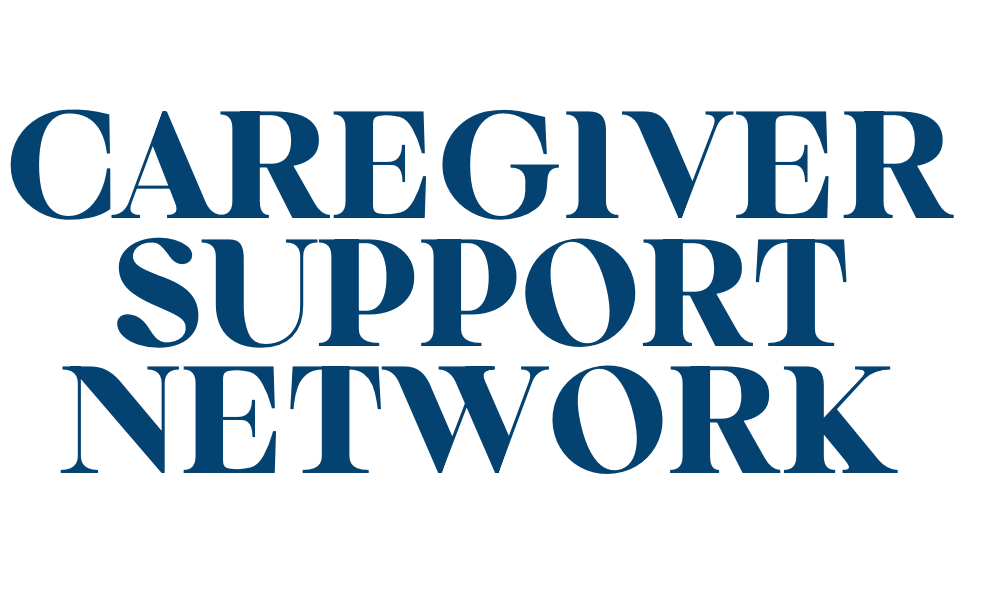Financial
End-of-Life Planning: Including Funeral Arrangements Step-by-Step
Uncover the hidden element in end-of-life planning that could profoundly affect your loved ones – it's more than just funeral arrangements.

There’s no disputing the importance of “being thoroughly prepared.” Within the context of end-of-life planning, engaging in discussions regarding funeral planning is a critical component that requires meticulous consideration.
From selecting between burial or cremation to detailing specific wishes for the service, these decisions can provide a sense of control and peace during a challenging time.
However, there's a crucial aspect that often goes undiscussed, one that can deeply impact not only the emotional but also the financial well-being of those left behind.
Key Takeaways
- Plan ahead to ease stress and ensure wishes are respected.
- Communicate preferences clearly with trusted individuals for clarity.
- Consider financial aspects like insurance and preplanning for expenses.
- Detail burial or cremation preferences and specify service type and location.
Importance of Funeral Arrangements
Planning funeral arrangements is an essential aspect of end-of-life preparation that allows individuals to dictate how they want to be remembered and honored after their passing. By including funeral preferences in our end-of-life planning, we not only ensure that our wishes are honored but also reduce stress and uncertainty for our loved ones during an emotionally challenging time.
It's crucial to consider our cultural traditions, religious preferences, and financial planning when specifying our funeral arrangements. This thoughtful process can alleviate the burden of decision-making for our family members, providing them with clear guidance on how to best honor our memory.
Moreover, detailing our funeral arrangements allows for a personalized farewell that reflects our unique life and values. By specifying our wishes in advance, we can ensure that our final goodbye is a meaningful and respectful tribute to the life we've lived.
Planning Ahead for Funeral Services

When considering preparations for funeral services, it's essential to carefully outline our preferences to ensure our wishes are respected and alleviate stress for our loved ones in the future. Planning ahead for funeral services can provide peace of mind and help control costs. Here are three key aspects to consider:
- Funeral Planning Options: Explore the different choices available, such as traditional funerals, cremation, direct burial, or memorial services. Each option has its unique aspects, and selecting what aligns with your values is crucial.
- Financial Decisions: End of life planning involves making financial decisions. By pre-planning your funeral, you can outline a budget, choose payment options, and potentially lock in current prices, sparing your family from financial burdens later.
- Advance Directives: Clearly express your preferences for funeral arrangements in advance directives. This ensures that your wishes regarding burial or cremation, type of service, and other details are honored, giving you control over how you want to be remembered.
Making Funeral Preferences Known
To ensure your funeral preferences are honored, it is vital to clearly communicate them to your loved ones. By expressing your funeral preferences openly, you can provide guidance on important decisions such as burial or cremation, the type of service you desire, and any religious or cultural traditions that are significant to you. Pre-planning your funeral arrangements not only allows you to document your wishes but also helps alleviate stress for your family during an already challenging time.
| Funeral Preferences | Actions |
|---|---|
| Communicate | Clearly express desires |
| Document | Write down wishes |
| Discuss | Talk with a trusted individual |
Discussing your funeral preferences with a trusted individual who understands your wishes can ensure they are carried out as you intended. This proactive approach not only helps alleviate stress for your loved ones but also provides them with clear guidance on how to honor your legacy respectfully.
Financial Aspects of Funeral Planning

Considering the financial aspects of funeral arrangements can provide peace of mind and support for your loved ones during a difficult time. When planning for funeral expenses, it's essential to be thorough and thoughtful. Here are three important steps to take:
- Preplanning: Prearranging your funeral can help ensure that your wishes are carried out and can alleviate financial stress on your family. By locking in current prices and protecting against inflation, you can provide a clear plan for your loved ones to follow.
- Insurance Policies: Funeral insurance or burial insurance policies can be valuable tools in covering funeral expenses. These policies can help alleviate the financial burden on your family and ensure that your funeral costs are taken care of.
- Comparison and Funds: Comparing costs from different funeral service providers is crucial. This step can help you make informed decisions about services and pricing. Additionally, consider setting aside funds in a payable-on-death account or establishing a funeral trust to specifically cover funeral expenses. These financial preparations can offer security and comfort during a challenging time.
Communicating Funeral Wishes
How can we ensure that our funeral wishes are clearly communicated and honored by our loved ones? It's crucial to establish trust and open communication with our family members regarding our Advance Care Planning and end-of-life preferences. When it comes to funeral and burial arrangements, detailing whether we prefer burial or cremation, the type of service, and the location is essential. Additionally, if there are specific cultural traditions or religious preferences that we want to be respected, it's vital to communicate these wishes clearly.
Pre-planning our funeral can also help alleviate financial burdens on our loved ones. By making arrangements in advance and even pre-paying for certain services, we can ensure that our wishes are carried out smoothly without placing additional stress on our family members during an already difficult time. Keeping a record of our funeral preferences in a readily accessible location can further assist those tasked with organizing the funeral, ensuring that our wishes are fulfilled to the best of their abilities.
Frequently Asked Questions
What Does an End of Life Plan Include?
When we talk about an end of life plan, we're looking at a comprehensive strategy that covers various crucial aspects. It involves making decisions about medical care, financial matters, and appointing guardians or executors.
This plan ensures that our wishes are known and respected, offering peace of mind to both ourselves and our loved ones. By detailing our preferences in advance, we can lessen the burden on our family members during a challenging time.
How Do You Organize Your End of Life?
When organizing our end of life, we start by preparing a checklist of essential details and compiling important documents in one secure place.
We communicate our wishes with loved ones to ensure understanding and consider pre-planning with a funeral home to ease the burden on family.
Utilizing online tools can help streamline the process and cover all necessary aspects.
It's crucial to have everything in order for peace of mind.
What Paperwork Do I Need for End of Life?
We need essential documents like a will, living will, power of attorney, and any advance directives for healthcare decisions. It's crucial to have all paperwork up to date, signed, and legally valid to avoid complications.
We should communicate document locations with trusted individuals or a lawyer for safekeeping. Keeping a comprehensive record of all end-of-life paperwork in one secure location is essential for peace of mind.
How Do I Make an End of Life Plan?
When making an end-of-life plan, we focus on documenting our preferences and ensuring loved ones know our wishes. It's crucial to discuss these plans openly and consider pre-planning to ease financial burdens.
Personal touches like music or charitable donations can make our funeral special. Keeping these details handy in our important documents ensures they're easily accessible when needed, giving peace of mind to us and our families.
Conclusion
As we navigate the difficult journey of end of life planning, including funeral arrangements, let's remember the importance of expressing our wishes to our loved ones.
By taking the time to communicate our preferences and make necessary preparations, we can provide them with a sense of guidance and relief during a challenging time.
Let's ensure that our final wishes are known and respected, allowing us to find peace and comfort in knowing that our loved ones will be taken care of.
Albert brings a wealth of knowledge and expertise to our writing team. With a background in caregiving and a deep understanding of the challenges faced by caregivers, Albert’s writing resonates with authenticity and empathy. He is committed to delivering high-quality content that empowers and supports caregivers on their journey.
Financial
What Makes Emeritus Senior Living a Top Choice for Seniors?
Keen on finding a senior living community that goes above and beyond for your loved ones?

At Emeritus Senior Living, we are immensely proud of our commitment to providing exceptional, personalized care for seniors looking for supportive communities. Our focus on creating inviting environments that encourage independence sets us apart in the industry.
From tailored programs to compassionate staff, we prioritize the well-being of our residents.
Interested in discovering how Emeritus Senior Living can offer your loved ones a place to thrive?
Key Takeaways
- Prominent provider of assisted living services with focus on independent living.
- Personalized care, supportive environment, and affordable prices offered.
- Community life emphasizes social interaction, independence, and personalized lifestyle options.
- Dedicated staff, specialized Alzheimer's care, and high quality ratings provided.
Emeritus Senior Living Overview
Established in 1993, Emeritus Senior Living stands as a prominent provider of assisted living services across North America, offering a compassionate alternative to full-time skilled nursing care. As the largest network of senior communities, Emeritus Senior Living caters to individuals seeking independent living with the added benefit of assistance when needed. Choosing an assisted living facility can be a challenging decision, but Emeritus Senior Living eases this process by promoting a supportive environment that encourages independence while providing essential senior care options.
Within each Emeritus community, residents experience a unique atmosphere tailored to their needs, ensuring a sense of belonging and comfort. The focus on high standards of care guarantees that individuals receive quality services at affordable prices, making senior living more accessible. Whether it's assistance with daily living activities or participation in customized senior living programs, Emeritus Senior Living prioritizes the well-being and happiness of each resident. By offering a compassionate and supportive environment, Emeritus stands out as a trusted provider in the realm of senior care.
Services Offered at Emeritus

At Emeritus Senior Living, our range of services is designed to cater to the individual needs and preferences of each resident, ensuring a personalized and supportive experience. We understand the importance of providing high-quality elder care that promotes independence and dignity. Our assisted living communities offer a variety of services to support our residents in their daily lives.
- Assistance with Daily Living Activities: We provide support with tasks such as bathing, dressing, medication management, and meal preparation to ensure that residents can maintain their independence while receiving the help they need.
- Customized Senior Living Programs: Our customized programs are tailored to each resident's interests and preferences, allowing them to engage in activities that bring them joy and fulfillment.
- High Standards and Supportive Environment: Each Emeritus community upholds high standards to create a supportive and nurturing environment where residents can feel safe and cared for while maintaining their sense of independence.
At Emeritus, we strive to offer personalized care that meets the unique needs of each individual, fostering a sense of community and belonging within our assisted living facilities.
Community Life at Emeritus
In our vibrant community at Emeritus Senior Living, residents and families experience a personalized and supportive lifestyle that fosters social interaction and independence. At Emeritus, we understand the importance of creating communities where seniors can thrive, feel connected, and maintain their independence. Our assisted living communities are designed to cater to the unique needs of each individual, offering a range of activities and amenities that promote social interaction and overall well-being.
Within our communities, we emphasize personalized lifestyle options to ensure that residents feel at home and cared for. Whether it's participating in group outings, engaging in social events, or simply enjoying a meal together, our residents have ample opportunities to connect with others and build lasting relationships. The sense of community at Emeritus is palpable, with each location having its own distinct personality that reflects the interests and preferences of its residents.
At Emeritus Senior Living, we pride ourselves on fostering a warm and welcoming environment where family values are at the core of everything we do. Our commitment to providing exceptional care and promoting social interaction makes Emeritus a preferred choice for senior living and assisted living communities.
Staff and Care at Emeritus

Our dedicated staff at Emeritus Senior Living ensures personalized care and assistance for residents, including specialized support for Alzheimer's and dementia needs. Our trained staff members go above and beyond to provide compassionate care and help residents with daily tasks. They're equipped to handle the unique challenges that come with Alzheimer's and dementia, offering individualized attention and support to ensure the well-being of every resident.
- Comprehensive Care: Our staff assists residents with appointments, groceries, and various daily tasks to make their lives easier.
- Specialized Support: Residents with Alzheimer's and dementia receive specialized care tailored to their specific needs, ensuring they're comfortable and safe.
- Quality Ratings: Emeritus Senior Living has received an overall rating of 4.3 out of 5 stars for staff and care, reflecting the dedication and commitment of our team.
Through testimonials like Oscar Morris', we see the positive impact our caring staff can have on residents' lives, although challenges like those mentioned by Mynette Rome remind us of the importance of continuous improvement and accountability in our care practices.
Choosing Emeritus for Your Loved Ones
When considering senior living options for your loved ones, the personalized programs and high standards of care offered by Emeritus Senior Living stand out as exceptional choices. Emeritus provides a range of services, including assisted living and skilled nursing, tailored to meet the unique needs and interests of each resident.
The facilities prioritize maintaining independence and ensuring a fulfilling life for seniors while upholding family values in a welcoming environment. By promoting social interaction and personal dignity, Emeritus empowers residents to lead satisfying lives.
Partnering with SeniorCareHomes.com further enhances the quality of care provided, ensuring that seniors receive the support and attention they deserve. Choosing Emeritus for your loved ones means entrusting them to a community that values individuality and prioritizes the well-being of each resident.
With Emeritus, you can have peace of mind knowing that your loved ones are in good hands and are receiving the care and support they need to thrive.
Frequently Asked Questions
What Happened to Emeritus Senior Living?
We learned about what happened to Emeritus Senior Living. Allegations of neglect and abuse were highlighted in a 2013 Frontline episode. A Sacramento jury held Emeritus liable for neglect resulting in a patient's death, awarding $23 million in damages.
Emeritus responded to these allegations through a dedicated website. This $23 million verdict against Emeritus was reported by the Seattle Times, drawing attention to the legal implications.
What Is Defined as Independent Living?
Independent living is tailored for active seniors who can manage daily tasks independently. Residents enjoy amenities like meals, housekeeping, social activities, and transportation. This lifestyle emphasizes social engagement and recreational opportunities, fostering a maintenance-free environment.
The freedom to come and go as desired, combined with access to supportive services if needed, creates a fulfilling experience for residents seeking a vibrant community setting.
What Does Assisted Living Mean?
Assisted living refers to a type of senior housing that provides support with daily activities like bathing and medication management. Residents have private apartments and receive personalized care. This setup allows seniors to strike a balance between independence and assistance.
Services may include meal prep, housekeeping, transportation, social activities, and access to medical care. The goal is to enhance seniors' quality of life by offering the necessary support for comfort and safety.
What Is the Meaning of Assisted Home?
Assisted home means a place where seniors get personalized support for daily activities, promoting independence while ensuring necessary care. Residents maintain dignity and enjoy social interactions.
Services often include medication management, meal prep, housekeeping, and transportation, all in a supportive environment. It's about tailoring care plans to individual needs, fostering a sense of community, and providing assistance to help seniors live fulfilling lives.
Conclusion
At Emeritus Senior Living, we strive to create a warm and welcoming environment where seniors can thrive.
One resident, Mary, found a new sense of purpose in our community through participating in our art therapy program.
Just like a vibrant painting coming to life on a blank canvas, Emeritus brings color and joy to the lives of our residents.
Join us in embracing the beauty of aging gracefully at Emeritus Senior Living.
Albert brings a wealth of knowledge and expertise to our writing team. With a background in caregiving and a deep understanding of the challenges faced by caregivers, Albert’s writing resonates with authenticity and empathy. He is committed to delivering high-quality content that empowers and supports caregivers on their journey.
Financial
Taking Action Against Elder Financial Abuse: Navigating Challenges
Amidst the rising threat of elder financial abuse, uncover how to navigate challenges and proactively combat exploitation, ensuring elder protection.

What tactics can we implement to effectively tackle the growing issue of financial abuse among seniors in our communities?
As we delve into the complexities of this troubling trend, it becomes evident that understanding the challenges and taking proactive steps are vital.
By exploring the role of Adult Protective Services, the obstacles in proving financial abuse cases, practical steps to address suspected abuse, available national and state resources, as well as ways to pursue legal action, we can equip ourselves with the knowledge needed to protect our elders and combat exploitation effectively.
Key Takeaways
- Monitor finances closely for signs of exploitation.
- Seek legal advice promptly for protection.
- Document irregularities in financial activities.
- Report suspicions to APS or law enforcement.
Role of APS in Addressing Abuse
In our efforts to combat elder financial abuse, Adult Protective Services (APS) plays a pivotal role through their diligent investigations and interventions. APS professionals are at the forefront of safeguarding vulnerable adults from financial exploitation, including the elderly. They're trained to recognize the subtle signs of elder financial abuse and take swift action to protect victims from further harm. Working hand in hand with legal services and law enforcement agencies, APS ensures the safety and well-being of older individuals who are at risk of exploitation.
Through comprehensive assessments and the provision of support services, APS coordinates vital interventions to shield older adults from falling prey to financial abuse within their communities. The role of APS in reporting, investigating, and preventing elder financial abuse is paramount in safeguarding the rights and assets of vulnerable elders. Their dedication and commitment to advocating for the elderly make a significant impact in the fight against financial exploitation of older adults.
Challenges in Proving Financial Abuse

Navigating the intricate landscape of elder financial abuse, particularly in proving such cases, poses multifaceted challenges that demand meticulous attention and perseverance. One of the key hurdles lies in gathering tangible proof to substantiate claims of elder financial abuse. This often involves obtaining critical documents like bank statements and legal evidence, which can be challenging due to privacy laws and restrictions faced by financial institutions. The misuse of authority, commonly seen in cases of elder financial abuse, further complicates matters, making it harder to detect and prove exploitation. Legal documents, such as Power of Attorney, can add layers of complexity to the process, requiring thorough examination to uncover any signs of wrongdoing. Moreover, concrete evidence such as documenting unpaid bills and suspicious property transfers are vital in establishing a compelling case against financial exploitation of seniors. Overcoming these proof challenges demands dedication and a keen eye for detail to protect vulnerable older adults from financial harm.
| Challenges in Proving Financial Abuse | ||
|---|---|---|
| Proof Challenges | Legal Evidence | Authority Misuse |
| Financial Institutions | Bank Statements | Power of Attorney |
| Property Transfers | Unpaid Bills |
Steps to Address Suspected Abuse
As we address suspected abuse, it's crucial to meticulously monitor bank and credit card statements for any signs of financial exploitation against elders. By keeping a vigilant eye on these financial records, we can detect potential red flags that may indicate abuse. It's essential to:
- Document any unpaid bills or financial strain experienced by the elder to understand their financial well-being fully.
- Keep track of changes in estate planning documents that could suggest manipulation or coercion.
- Note any property transfers or inconsistent lifestyle changes that don't align with the elder's known income and resources.
These steps are vital in uncovering evidence of financial elder abuse and taking action to protect vulnerable individuals. By paying attention to these details and being proactive in monitoring financial activities, we can help prevent further harm and ensure the well-being of our elders.
National and State Resources

Our nation's commitment to supporting elder abuse victims is exemplified through the allocation of resources at both the national and state levels. Various services and resources are available to aid victims of elder financial abuse.
Adult Protective Services (APS) at the state level play a crucial role in responding to reports of elder abuse, including financial exploitation. The National Center on Elder Abuse provides valuable information and assistance to individuals and organizations working to combat elder abuse.
State laws govern the protection of seniors, outlining legal interventions and procedures for reporting elder financial abuse. Access to financial records is often essential for investigating and addressing instances of exploitation. Victim services, including counseling and support, are offered to those affected by elder financial fraud.
Ways to Take Legal Action
When addressing elder financial abuse, it's crucial to report any suspected instances to Adult Protective Services (APS) or local law enforcement for thorough investigation. Seeking legal action against elder financial exploitation involves several key steps:
- Consult with an Elder Law Attorney: Engaging an elder law attorney can provide insight into the legal options available and offer guidance on the best course of action to protect the elderly individual.
- Gather and Maintain Documentation: It's essential to collect and organize all relevant documentation, including bank statements, legal papers, and communication records. This documentation is vital in supporting legal proceedings and building a strong case against the abuser.
- Engage with Advocacy Organizations: Support from advocacy organizations specializing in elder financial abuse cases can offer additional resources and assistance in navigating the legal system effectively, ensuring prompt action to prevent further financial harm to the elderly individual.
Taking swift and decisive legal action is paramount in safeguarding the rights and financial well-being of vulnerable seniors.
Frequently Asked Questions
How Can We Protect the Elderly From Financial Abuse?
We can protect the elderly from financial abuse by:
- Educating them on common scams,
- Establishing trusted contact arrangements for oversight,
- Conducting regular audits,
- Fostering community support, and
- Implementing legal safeguards like Power of Attorney.
These proactive steps help reduce the risk of exploitation and create a protective network for elders.
Is Financial Abuse the Same as Financial Exploitation?
Yes, financial abuse and financial exploitation are distinct forms of mistreatment targeting elders.
While financial abuse involves the misuse of funds by a trusted individual, financial exploitation refers to unauthorized or improper use of an elder's assets.
Understanding these differences is vital in effectively combating both issues and safeguarding the financial well-being of our elderly population.
It's essential to recognize the unique aspects of each type of mistreatment to provide the necessary support and protection.
How Do You Respond to Financial Abuse?
When we encounter financial abuse, we respond promptly and decisively. We report the abuse to authorities, consult with legal experts, gather evidence, seek assistance from Adult Protective Services, and maintain thorough records.
Our goal is to protect vulnerable adults and seek justice against exploitation. By taking these steps, we can address financial abuse effectively and ensure the safety and well-being of those affected.
What Is the Description of Elder Financial Exploitation?
Elder financial exploitation involves the unauthorized or improper use of an elder's funds, property, or assets. Perpetrators may include family members, caregivers, or strangers taking advantage of vulnerabilities. Exploitation manifests through coercion, deception, or undue influence to gain control over finances.
It often goes unreported due to shame, fear, or lack of awareness, making detection challenging. Recognizing signs is crucial to protect elders from financial harm and secure their assets.
Conclusion
As we journey through the complexities of addressing elder financial abuse, let's stand together as a beacon of hope and resilience for our elders.
Just as a lighthouse guides ships through turbulent waters, let's be the guiding light that illuminates the path towards justice and protection.
With unwavering determination and a compassionate heart, we can create a safer, more secure world for our beloved seniors.
Together, we can make a difference.
Albert brings a wealth of knowledge and expertise to our writing team. With a background in caregiving and a deep understanding of the challenges faced by caregivers, Albert’s writing resonates with authenticity and empathy. He is committed to delivering high-quality content that empowers and supports caregivers on their journey.
Financial
The Importance of Planning Ahead for Success
Wander through the delicate tapestry of care and foresight with Pat Deegan RN, discovering the profound impact of proactive end-of-life planning.

Imagine a delicately woven tapestry of care and choices intricately combined to create a peaceful journey. Pat Deegan, RN, invites us to enter a world where hope shapes the path to life’s end.
As we navigate the intricacies of planning ahead, we realize the power of preparation. The episode unveils the intricate layers of considerations vital for a well-thought-out end-of-life strategy.
Join us as we explore the profound impact of proactive steps and the comfort they bring.
Key Takeaways
- Early discussions lead to clarity and peace of mind.
- Choosing a Medical Power of Attorney is crucial.
- Regularly update advanced directives for honored wishes.
- Engage in open conversations to ensure loved ones are prepared.
Understanding End-of-Life Planning
Understanding end-of-life planning is a vital step in ensuring that your wishes are honored and your loved ones are well-prepared for the future. When it comes to planning for the end of life, considerations such as nursing home arrangements, caregiver support, estate planning, and advanced directives play a crucial role in shaping the outcome. By discussing these topics openly and proactively, individuals can make informed decisions that reflect their values and beliefs.
Incorporating advanced directives, like living wills and medical power of attorney, into your end-of-life plan ensures that your preferences regarding medical treatment and care are clearly outlined. Estate planning helps organize your assets, debts, and property distribution, alleviating financial burdens on your family. Additionally, discussing nursing home options and caregiver responsibilities allows for smoother transitions and better support during challenging times.
Benefits of Early Discussions

Starting conversations early about end-of-life planning can provide a sense of clarity and peace of mind, ensuring that personal wishes are known and honored when the time comes. Research indicates that families who engage in these discussions experience less stress and uncertainty when faced with critical situations.
By involving caregivers like Diane Carbo early on, misunderstandings and conflicts can be prevented, leading to smoother decision-making processes. Early planning allows for adjustments over time, ensuring that choices align with individual values and beliefs.
These conversations not only benefit the individual but also lead to more meaningful and supportive interactions with loved ones. Embracing the guidance of professionals like Pat Deegan RN can facilitate these discussions, offering expertise and compassionate support throughout the planning process.
Therefore, initiating early discussions about end-of-life planning can yield numerous advantages, promoting understanding, harmony, and a sense of preparedness for the future.
Essential Considerations for Planning
Establishing clear and detailed end-of-life plans is essential for ensuring that individual preferences are respected and carried out effectively. When considering end-of-life planning, it's crucial to have a comprehensive strategy in place to guarantee your wishes are honored.
Here are three essential considerations to keep in mind:
- Choosing a Medical Power of Attorney: Selecting a trusted individual to act as your medical power of attorney is vital. This person will make healthcare decisions on your behalf if you're unable to do so. Ensuring this individual understands your values and preferences is key to effective decision-making.
- Regular Review and Updates: Regularly reviewing and updating your end-of-life documents is essential. Circumstances can change, so it's important to ensure that your plan reflects your current wishes accurately.
- Peace of Mind: Having a plan in place provides peace of mind for both you and your loved ones. Knowing that your preferences will be followed can alleviate anxiety and uncertainty, providing a sense of security during challenging times.
Proactive Steps for End-of-Life Wishes

As we navigate the process of end-of-life planning, taking proactive steps to articulate our wishes can empower us to ensure our preferences are respected and honored.
Regularly updating advanced directives is crucial to accurately reflect our end-of-life wishes.
Assigning a trusted loved one as a healthcare proxy can provide support in making medical decisions aligned with our preferences.
Discussing important things like end-of-life plans with family members can prevent conflicts and ensure everyone is on the same page when critical decisions need to be made.
Considering organ donation and body donation options in advance can ease decision-making processes during challenging moments.
Open communication with healthcare providers about living wills and hospice preferences is essential for receiving appropriate care tailored to our needs.
Ensuring Loved Ones Are Prepared
To ensure our loved ones are prepared for the future, discussing end-of-life plans is crucial to alleviate stress and ensure clarity in times of need. When it comes to planning ahead, there are several key steps we can take to make sure our loved ones are well-prepared:
- Engage in Open Conversations: Initiate discussions with family members about end-of-life wishes and preferences. This open dialogue can help everyone understand each other's desires and make informed decisions together.
- Create Necessary Documents: Ensure all essential documents are in place, such as advanced directives, wills, and assigning a medical power of attorney. Having these documents organized and accessible can ease the burden on loved ones during difficult times.
- Encourage Early Planning: Encouraging early discussions and documentation can help prevent misunderstandings and ensure that everyone's wishes are respected. By addressing these important matters proactively, we can help alleviate family stress and ensure a smoother process for everyone involved.
Frequently Asked Questions
How Can Cultural Beliefs and Traditions Impact End-Of-Life Planning?
When considering end-of-life planning, cultural beliefs and traditions play a significant role in shaping our decisions. These deeply held values influence everything from the type of care we receive to how we want to be remembered.
It's essential to acknowledge and respect these differences when supporting individuals through this process. By understanding and incorporating cultural perspectives, we can ensure that each person's end-of-life wishes are honored with sensitivity and dignity.
What Role Does Spirituality Play in the End-Of-Life Planning Process?
Spirituality plays a crucial role in end-of-life planning, guiding individuals through a journey of reflection, peace, and acceptance. It provides comfort, meaning, and a sense of connection to something greater than ourselves.
How Can Individuals Navigate Complex Family Dynamics When Discussing End-Of-Life Wishes?
When navigating complex family dynamics while discussing end-of-life wishes, we find that open communication and empathy are key.
By actively listening to each family member's concerns and values, we can create a safe space for sharing and understanding.
It's essential to approach these conversations with patience and respect for differing perspectives.
Together, we can work towards honoring everyone's needs and finding common ground for making important decisions about end-of-life care.
Are There Legal Considerations That Need to Be Taken Into Account When Creating an End-Of-Life Plan?
Absolutely, there are legal considerations to keep in mind when crafting an end-of-life plan. It's crucial to ensure that your wishes are documented clearly and legally binding.
Things like advance directives, wills, and power of attorney documents play a significant role in protecting your interests and ensuring your desires are respected.
Consulting with legal professionals can provide peace of mind and help navigate the complexities of legal requirements in this process.
How Can Individuals Ensure That Their End-Of-Life Wishes Are Carried Out if They Become Incapacitated?
Absolutely, ensuring that our end-of-life wishes are honored if we become incapacitated is crucial. We can achieve this by creating advance directives, such as a living will or a durable power of attorney for healthcare. These legal documents allow us to outline our preferences regarding medical care and appoint a trusted individual to make decisions on our behalf.
Regularly reviewing and updating these documents can help maintain alignment with our current wishes.
Conclusion
As we wrap up our discussion on the importance of end-of-life planning, remember that procrastination is the thief of time. So let's not wait until it's too late to have those difficult conversations and make our wishes known.
By taking proactive steps now, we can ensure that our loved ones are prepared and have peace of mind knowing they're honoring our wishes. It's never too early to start planning for the inevitable.
Albert brings a wealth of knowledge and expertise to our writing team. With a background in caregiving and a deep understanding of the challenges faced by caregivers, Albert’s writing resonates with authenticity and empathy. He is committed to delivering high-quality content that empowers and supports caregivers on their journey.
-

 Dementia Care2 weeks ago
Dementia Care2 weeks agoHow Gabapentin Affects Dementia: A Comprehensive Guide
-

 Dementia Care2 months ago
Dementia Care2 months agoUnderstanding the Stages of Vascular Dementia: A Visual Chart Guide
-

 Dementia Care2 weeks ago
Dementia Care2 weeks ago5 Things You Need to Know About Jack Nicholson’s Dementia
-

 Medication Management1 month ago
Medication Management1 month agoGabapentin Side Effects: Memory Loss Concerns?
-

 Dementia Care2 months ago
Dementia Care2 months agoUnderstanding Narcissism and Dementia: A How-To Guide
-

 Palliative Care for Parkinson's2 weeks ago
Palliative Care for Parkinson's2 weeks agoPalliative Care for Parkinson’s: A New Hope for Patients”
-

 Dementia Care2 weeks ago
Dementia Care2 weeks ago10 Engaging Dementia Games for Cognitive Stimulation
-

 Dementia Care2 months ago
Dementia Care2 months agoHow to Deal with a Parent’s Dementia: A Practical Guide

















